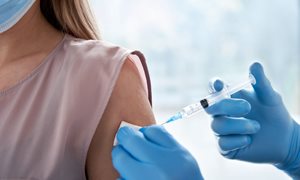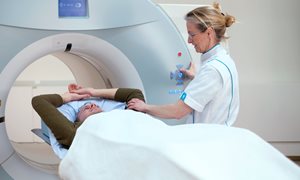
One third of patients with an infection in the intensive care unit die. Antibiotics are therefore crucial, but are they applied optimally in this group of patients? In her thesis 'Revisiting antimicrobial therapy in critically ill patients through pharmacometrics', Eveline Wallenburg shows that intensive care patients often receive the wrong dosage of antibiotics. She developed computer models that determine the correct dosage. The defense will take place on August 29, 2022.
Bacterial infections are a major problem in patients admitted to the intensive care unit. As many as 30% of these patients die. Therefore, antibiotics are of enormous importance in the intensive care unit. However, it is crucial that patients receive the right dosage. A dosage that is too low does not resolve the infection, while a dosage that is too high can have dangerous side effects. The problem is that standard dosages are based on studies in healthy volunteers or in patients who are not admitted to the intensive care unit. PhD candidate Eveline Wallenburg: ‘These individuals are incomparable to intensive care patients. For example, the kidneys of patients in the intensive care unit often function less well or too quickly.’ The kidneys play a major role in the removal of drugs from the body via urine. Therefore, a change in kidney function has a major impact on blood levels of drugs, including several antibiotics. As such, intensive care patients may need adjusted dosages to ensure safety and effectiveness.
Standard dosage too low
The research in Wallenburg's thesis is aimed at improving dosages of three commonly used antibiotics in the intensive care unit. She determined blood levels of these drugs in patients during their admission to the intensive care unit. Furthermore, she collected other information, such as age, gender, and kidney function. Wallenburg combined all these data into mathematical models. These models revealed that the standard dosage of two of the studied antibiotics was often too low, especially in patients with augmented kidney function. Wallenburg: 'For example, only a few percent of patients who received the standard dosage of one of the antibiotics had sufficiently high blood levels,’ says Wallenburg. ‘These patients should have received a much higher dosage. The model also gives a dosage recommendation based on several patient characteristics.'
Software for the right dosage
The models are now implemented into software that is suitable for use in daily clinical practice. Will measuring blood levels no longer be necessary in the future? Wallenburg: ‘Measurements are also important, certainly for patients who have a very poor or highly augmented kidney function. Blood levels are also difficult to predict in patients undergoing dialysis. Nevertheless, if the kidney function is not too abnormal, our models are already sufficiently accurate to be used in daily clinical practice.’
Joining forces
'Eveline has laid important groundwork for future research into the optimal dosage of antibiotics,' says Roger Brüggemann, co-supervisor and leader of the study. He talks about follow-up studies: 'First, we are going to determine whether the blood levels of antibiotics that are considered effective really are effective. These levels were determined in animals, laboratory studies, or in very small groups of patients. The question is whether these are accurate enough.' To assess this, Brüggemann and his colleagues are collecting data from large groups of patients from several hospitals in the Netherlands and abroad. ‘Secondly, we will investigate application of antibiotics at the site of infection.’ Infections are sometimes present in only one organ, for example in the brain, lungs, or joints. However, by administering antibiotics into the bloodstream, the entire body is exposed to these agents. This causes many side effects. Brüggemann: ‘Therefore, we are going to investigate whether we can administer antibiotics locally for certain infections.' Finally, he is committed to intensify collaboration between various disciplines within the hospital: 'Eveline's research was a very fruitful collaboration between the department of pharmacy and the intensive care unit. We also involve microbiologists, infectiologists, and immunologists in our studies. They know everything about the sensitivity of bacteria to antibiotics and the patient's immune system. There is so much knowledge available and, if we join forces, we will continue to improve the care for patients with infections.'
More information about this PhD thesis defense
PhD thesis defense of Eveline Wallenburg on August 29th at 2.30 p.m. Title of dissertation: Revisiting antimicrobial therapy in critically ill patients through pharmacometrics (available online after 29 August). (Co-)supervisors: Prof. Dr. D.M. Burger, Dr. R.J.M. Brüggemann, Dr. R. ter Heine and Dr. J.A. Schouten. The defense can be followed via this livestream.
-
Want to know more about these subjects? Click on the buttons below for more news.
More information
Related news items

What can we learn from rural Tanzanian food?
23 December 2021 What we eat affects our bodies. A diet high in plant based products and low in fat offers health benefits and prevents lifestyle diseases, such as cardiovascular disease. This is what Quirijn de Mast shows based on his research in Africa. read more.jpg.aspx?width=500&height=333&ext=.jpg&type=BlockColumn1Zoom1)





